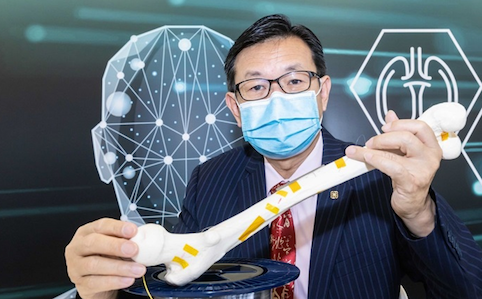
The Hong Kong Polytechnic University (PolyU) in China has made a breakthrough development in optical fibre sensors, making the advanced railway safety monitoring technologies available for medical surveillance inside the human body.
The research team led by Professor Hwa-yaw TAM, Chair Professor of Photonics and Head of the Department of Electrical Engineering at PolyU, has developed the novel fibre optic microsensors that are biocompatible, supple and extremely sensitive to very small pressure changes inside the human body.
The new sensors open new possibilities for medical applications, from improving surgery precision to providing novel ways of monitoring human body recovery from within the body. Examples include smart cochlear implantation, bone fracture recovery monitoring, or navigation monitoring in cardiac catheterization.
The research team is currently working with counterparts from Australian and Japanese universities to develop various sensors for medical monitoring applications.
For instance, a smart cochlear implant featuring the PolyU tiny sensors could provide critical information about location and force to surgeons in real time during the implantation procedure. The smart cochlear implant will commence in vitro testing at the Australia's University of Melbourne and the Royal Victorian Eye and Ear Hospital.
PolyU is also working with Australia's Monash University researchers to integrate fibre sensors in orthopaedic implants for monitoring bone fracture recovery.
Image caption- Professor Hwa-yaw TAM, Chair Professor of Photonics and Head of the Department of Electrical Engineering at PolyU




